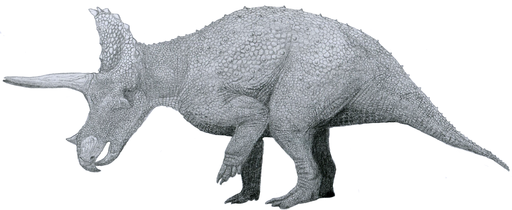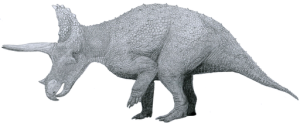Creation Corner
Scientist fired for discovery

Can a scientist lose his job for discovering something new and telling the community about it? It happened recently. And the scientist who lost his job, is going to court to get it back. And that case threatens to pit creation against evolution in a trial to rival Tennessee v. Scopes.
A scientist tells his story
Mark Armitage was supervisor of the electron microscope laboratory at California State University, Northridge campus (CSUN). Two years ago, CSUN abruptly fired him. Now he has a lawyer from the Pacific Justice Institute. They announced yesterday they were suing CSUN. The grounds: “discrimination for perceived religious views.”
Whether Mark Armitage ever raised his religion at CSUN, no source makes clear. But the complaint alleges one of Armitage’s superiors screamed at him, “We are not going to tolerate your religion in this department!” (This story from the Christian News Network confirms someone walking into his laboratory and roaring that at him.)
Shortly afterward the university deemed his appointment temporary (he had been with CSUN for 38 months) and said he lacked funding. But in so saying, they seem to have contradicted earlier statements of theirs, some of them in writing.
Why did CSUN fire a scientist directing a key laboratory? Because he found something the scientific community refuses to believe anyone could possibly find. He found soft tissue in a dinosaur bone. A bone for a creature that, according to convention, died at least 60 million years ago.
Triceratops horridus makes evolutionists shudder

Artist’s concept of a sub-adult Triceratops horridus. Drawing by Tom Parker. CC BY-SA 3.0 Unported License.
Specifically, Dr. Armitage found a fossil of Triceratops horridus. And in the large horn above the eyes (the largest anyone has ever found), Dr. Armitage found sheets of soft fibrillar bone. As he would describe it later, he found these sheets of soft bone before and after decalcifying the bone. He examined this material under a scanning electron microscope (SEM) and found osteocytes, the cells that lay down bone.
He sent his find in to Acta Histochemica. (They published it in their July 2013 issue.) That seems to be when his superior barged into his laboratory and screamed at him.
The scientist denies directly questioning evolution in the paper, and the abstract says no such thing. He said his find “extends the range and type of dinosaur specimens known to contain non-fossilized material in bone matrix.” He might have been talking about Mary Schweitzer’s find of still soft bone marrow in a thigh of Tyrannosaurus rex, as the Associated Press described in 2005. He might also have been talking about the discovery, mentioned also at Christian News, of well-preserved skin from a fossil of a hadrosaur. Or maybe he had heard of the discovery of a shrimp fossil that held meat that smelled fit to eat.
Note carefully the allegation in the complaint: “discrimination for perceived religious views.” Mark Armitage never said officially he felt that Triceratops horn could not be millions of years old. But his critics realized the dilemma (or tri-lemma) they were in as soon as they read his submission to Acta Histochemica. Either those osteocytes were not present, or soft tissue can survive far longer than any scientist thinks it can, or that Triceratops lived only thousands of years ago, not millions. No one even questions that Armitage found his specimen in a geological stratum where one would expect to find a Triceratops horn. If that animal lived only thousands of years ago, so did every other animal whose skeleton, or any part of it, rested in that stratum and all the strata above it. Someone must have realized what this implied: that animal drowned in the Global Flood.
That’s the only reason a fellow scientist would infer Armitage was trying to throw religion into his work. And he inferred that only from Armitage’s work, not from anything he said.
[ezadsense midpost]
Of course, anyone who studies the Hydroplate Theory of the Global Flood would have no trouble accepting this find. That theory would also explain the Schweitzer T. rex bone-marrow find, or the hadrosaur skin find. It would explain how someone could find shrimp in a fossil layer that might tempt him to eat it.
But this find cannot agree with an old earth. Even an old-earth creationist couldn’t explain it. But a young-earth creationist can.
Now a court will decide whether a university community has the right “not [to] tolerate [a scientist’s] religion.” But in so deciding, the court must also decide whether a State university can tolerate a scientific find that happens to validate a religion. Can science itself violate the First Amendment’s Establishment Clause? Is that where current case law will lead a court? If so, this case might go to the Supreme Court of the United States. That Court might have to decide whether a scientist has the Constitutional right to be right when his colleagues are all wrong. Even if it means validating a religion in a government university.
Reprinted from examiner.com
[ezadsense leadout]
Terry A. Hurlbut has been a student of politics, philosophy, and science for more than 35 years. He is a graduate of Yale College and has served as a physician-level laboratory administrator in a 250-bed community hospital. He also is a serious student of the Bible, is conversant in its two primary original languages, and has followed the creation-science movement closely since 1993.
-

 Civilization3 days ago
Civilization3 days agoTariffs, the Supreme Court, and the Andrew Jackson Gambit
-

 Civilization3 days ago
Civilization3 days agoWhy Europe’s Institutional Status Quo is Now a Security Risk
-

 Civilization1 day ago
Civilization1 day agoMaduro’s Capture: U.S. Foreign Policy in Latin America
-

 Civilization4 days ago
Civilization4 days agoEpstein and the destruction of trust
-

 Civilization4 days ago
Civilization4 days agoDeporting Censorship: US Targets UK Government Ally Over Free Speech
-

 Executive4 days ago
Executive4 days agoWaste of the Day: Wire Fraud, Conflicts of Interest in Connecticut
-

 Civilization2 days ago
Civilization2 days agoTrump Lashes Out at Supreme Court as Under ‘Foreign Influence’
-

 Education5 days ago
Education5 days agoWaste of the Day: Throwback Thursday – The Story of Robosquirrel













[…] from examiner.com and Conservative News and […]
[…] Scientist fired for discovery […]
SJ Cottrell liked this on Facebook.
David Sullivan liked this on Facebook.
[…] and: link to cnav.news […]
[…] and: link to cnav.news […]
Steve Stafford liked this on Facebook.
[…] Scientist fired for discovery and here […]
[…] Scientist fired for discovery and here […]